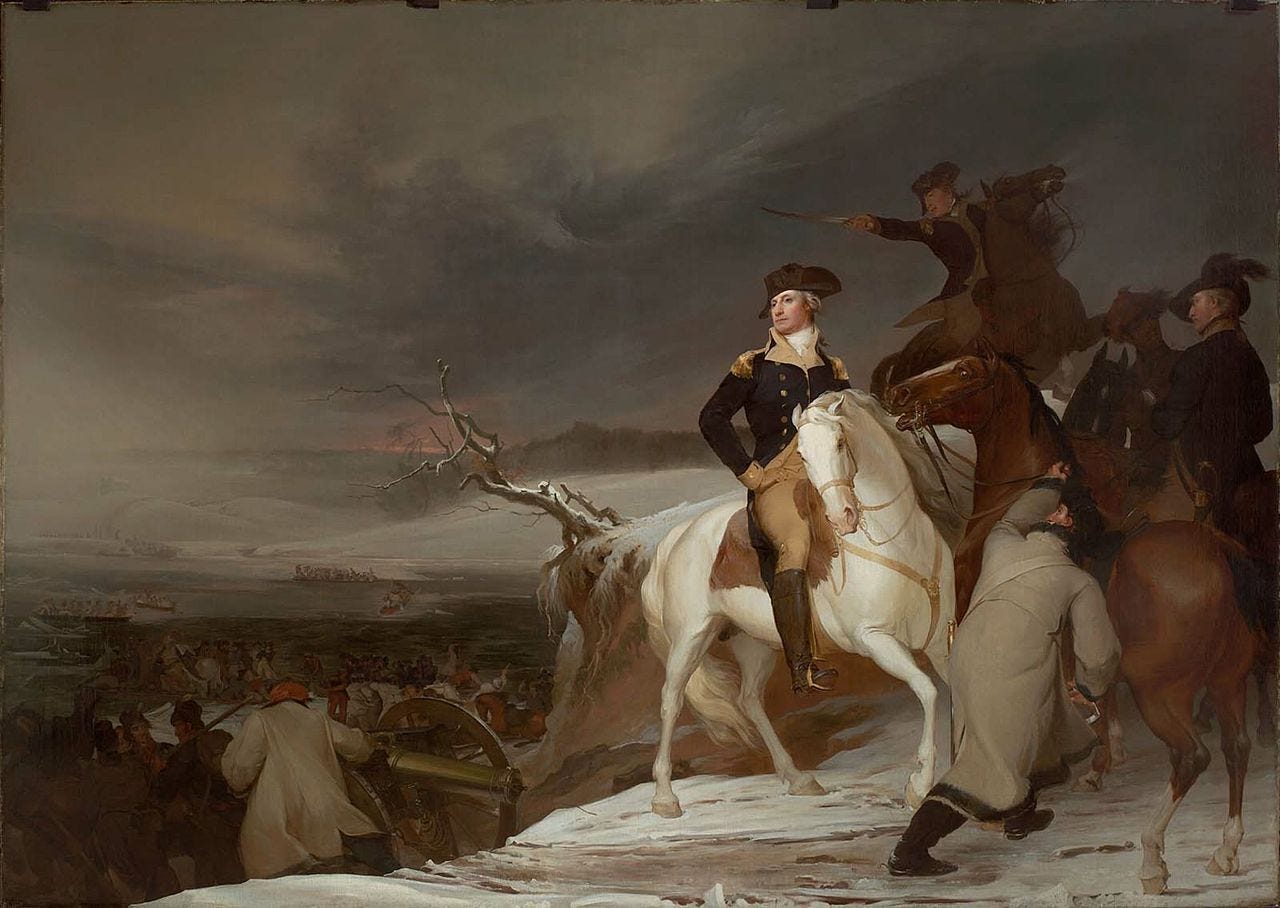George Washington and the Failure of Success
Washington's rivals had successes that failed them, but Washington kept plodding along.
George Washington had several rivals jockeying for the position of Commander-in-Chief of the Continental Army. Horatio Gates and Charles Lee, in particular, were underhanded about it. They worked to undermine Washington’s reputation and authority throughout the war.
Gates and Lee felt empowered to attack Washington after coming off respective military successes: Gates with a resounding victory at Saratoga, forcing over 5,000 British troops to surrender, and Lee stopped a British advance in the south. Both of these men staked their reputations on these successes and let the pride go to their heads. And both of them ended up failing in ways that destroyed their own reputations.
Gates retreated from combat 180 miles before sending word of his defeat. Lee was unable to stop his retreating men after a disastrous offensive. Their reputations lived by the sword, and so they were destined to be tarnished by the sword.
Washington himself had his share of success but also of failure. The latter was the only reason he was vulnerable to political attacks, and he rode them out with patience. Whenever Washington was successful, however, he was always quick to praise others, to recognize that he did not do it alone. His letters are full of this type of correspondence, tossing out credit and praise as if they would burn his hands if he held onto them too long. You get the picture of a man of confidence tempered by humility.
While it’s possible Washington’s show of magnanimity and humility was a deliberate act for posterity (for Washington knew he would be seen as an important player on the stage of history and preserved his letters accordingly), I think we should give him the benefit of the doubt. A man who repeatedly turned his back on the trappings of power, rejected an easy kingship, risked his own life and wealth for an unsure cause, and was adamant about civilian control of the military is probably not a man that harbored a secret, grandiose view of himself.
Eventually, Washington was left standing without any rivals. Other men’s successes failed them, but Washington plodded along, always giving credit to others, seldom tooting his own horn, and worried more about the mundane logistics of keeping an inexperienced, ill-equipped army together through harsh winters than about how the newspapers portrayed him.
There are lessons we can all learn from Washington. To desire to be the last to take credit for success (Matthew 20:16). To give praise liberally where it is warranted. To ensure we keep our pride in check and never think we are more clever than we are. To wait and let others praise you (Luke 14:10).
If you claim all the success for yourself, you will be left alone to handle the inevitable failure. The path to the top is not inevitably lonely. We make it that way with our pride.


